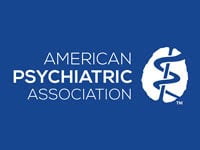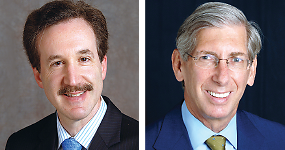Yesterday APA joined five other physician groups in calling on the Trump administration and...
APA Praises Passage of Legislation to Address MH Problems, Burnout Among Health Care Professionals

APA joined five leading physician groups yesterday in commending the passage of the Dr. Lorna Breen Health Care Provider Protection Act (HR 1667). The legislation establishes grants to prevent and reduce suicide, burnout, and mental and behavioral health conditions among health care professionals. Having passed both the House and Senate, the bill now heads to President Joe Biden’s desk for signature.
The Dr. Lorna Breen Health Care Provider Protection Act is named in honor of Lorna Breen, M.D., an emergency room physician who was working on the front lines when COVID-19 first emerged in New York. Breen died by suicide in April 2020.
“Research shows that physicians in the U.S. face higher incidence of suicide than almost any other profession, and the COVID-19 pandemic has exacerbated personal hardships as physicians continue caring for patients, themselves, and their families,” wrote APA, the American Academy of Family Physicians, the American Academy of Pediatrics, the American College of Obstetricians and Gynecologists, the American College of Physicians, and the American Osteopathic Association in a statement. “The passage of the Dr. Lorna Breen Health Care Provider Protection Act is timely and critical to ensuring our nation’s ability to respond to the mental health needs of physicians and other health care professionals.”
Sen. Tim Kaine (D-Va.) introduced the bill in July 2020. Co-sponsoring the legislation were Sens. Todd Young (R-Ind.), Jack Reed (D-R.I.), and Bill Cassidy, M.D. (R-La.) and Reps. Susan Wild (D-Pa.) and David McKinley (R-W.Va.).
According to a news release, the Dr. Lorna Breen Health Care Provider Protection Act will
- Establish grants for health profession schools, academic health centers, hospitals, and other institutions to help them train health workers in strategies to prevent suicide, burnout, and mental health conditions, including substance use disorders, among health care professionals.
- Seek to identify and disseminate evidence-informed best practices for reducing and preventing suicide and burnout among health care professionals and training health care professionals in appropriate strategies to promote their mental health.
- Establish a national evidence-based education and awareness campaign targeting health care professionals to encourage them to seek support and treatment for mental health and substance use disorders and stigma associated with seeking care for these conditions.
- Establish grants for health care professionals and professional associations for employee education, peer-support programming, and mental health treatment.
- Establish a comprehensive study on the impact of the COVID-19 pandemic on the mental health of health care professionals.
The legislation also directs the Department of Health and Human Services (HHS) to study and develop policy recommendations to remove barriers to accessing care and treatment and identify strategies to promote resilience, according a congressional summary of the bill.
“We’re … pleased that this bipartisan, bicameral legislation supports research on health care professionals’ mental and behavioral health, including how best to heal from the pandemic’s detrimental impact on the health care community,” APA and the five physician groups wrote. “Amid a public health emergency, this is more important than ever.”
For related information, see the Psychiatric News article “APA Applauds Passage of COVID-19 Relief Package.”
Join DDHE for ‘Looking Beyond Series’ Tonight
The Division of Diversity and Health Equity (DDHE) invites you to join tonight's webinar titled “123 Years Since W. E. B. Du Bois’ Case Study … Social Determinants of Health Inequities Continue.” Du Bois’ famous case study, based in an 1890s Philadelphia neighborhood, is considered the first study of an urban population of African Americans. Du Bois tied the relatively poor health status of the residents, even those with higher income or social status, to discriminatory practices and health inequities that continue to this day. What can we do to create a country in which discrimination and health inequities no longer exist? The webinar will begin tonight at 7 p.m. ET.





